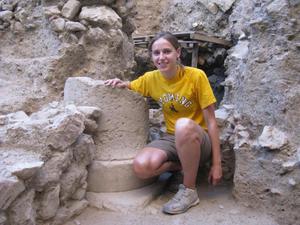Ancient Greeks were the pioneers of technological and structural development. Having built some of the greatest Wonder’s of the Ancient World, the Greeks certainly utilised foresight in their construction.
Yet, a new study has shown that Greece’s greatest development may have been the construction of the world’s first disability ramp, improving access for visitors.
Archaeologists from California State University re-examined the placement and design of ramps at several Greek buildings, and concluded that they were installed to improve access for disabled locals.
“There are 11 stone ramps on nine separate buildings,” archaeologist Debby Sneed says.
“The distribution is pretty clear: They show up in places where there are more disabled people.”

The ramps were originally assumed to be used for greater accessibility in transporting animal sacrifices to temples. Sneed argues that this theory is untrue, saying animals were usually sacrificed outside, and most Greek buildings don’t have ramps, suggesting they weren’t common for construction purposes.
Researchers discovered that majority of ramps were commonly found at healing sanctuaries, where many mobility-impaired people went in search of help from the healing god Asclepius. Small clay offerings depicting afflicted legs and feet were left behind by hopeful visitors at these sanctuaries, along with skeletal evidence showing arthritis and joint disease was common.

Katja Sporn, head of the German Archaeological Institute’s Athens department and the author of a paper examining temple ramps in the Greek world, argues Sneed’s point of observation.
“It helps everyone, also disabled people, walk into temples better,” Sporn says. “But that you would only do it for disabled people I don’t find convincing.”

